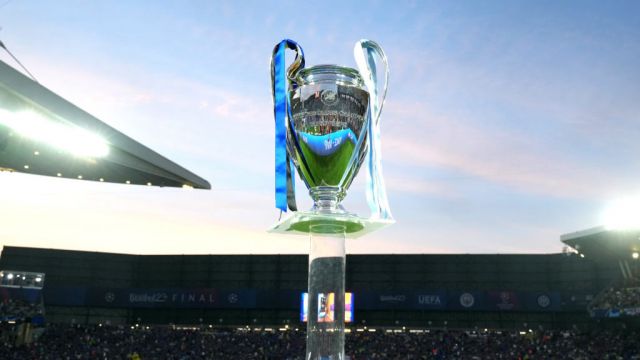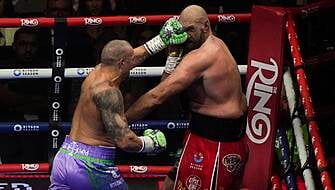The draw for the new-look Champions League takes place in Monaco on Thursday.
Here the PA news agency sets out the new format and how the draw will work.
So what’s new?
Quite a bit. The long-established group-stage format, featuring eight pools of four teams, has been scrapped.
In its place comes a 36-team league phase. Instead of six games each in the old format, teams will now play eight matches – four at home, four away – against two opponents from each of the four seeding pots.
The top eight teams will qualify automatically for the last 16 – more on that later – while the teams placed ninth to 24th will enter a new knockout phase play-off round to decide the final eight last-16 berths. Teams finishing 25th and lower will be out – teams do not drop down to the Europa League any more.
The same format will be used in the Europa League, with the Conference League the same too, except teams will only play six initial matches instead of eight.
How will this be an improvement?
UEFA believes this format will provide a more compelling spectacle, with more match-ups between the big sides at an earlier stage than in the old format. League placing will also have a bearing on a team’s route through the knockout phase, placing extra significance on matches even if qualification is already assured – again, more on that later.
Clubs will benefit from additional matchday revenue, with at least two extra games and the possibility of a further two if they end up in the knockout phase play-offs.
The hope is that the new format will be a hit with clubs and fans, and keep any threat of a revived European Super League at bay.
How will the draw work?
Rather than the manual draw we have become used to, UEFA will now operate a hybrid draw. Each of the 36 teams will still be manually drawn out, working down through the four seeding pots from top to bottom. But instead of drawing their opponents manually, this will now be done digitally and take little more than a second per team.
The technology UEFA is using will apply certain principles – it will keep apart teams from the same country, who cannot meet until the knockout phase play-offs. It will also ensure teams play no more than two opponents from one country in the league phase.
UEFA anticipates that this hybrid draw will take approximately the same amount of time – 35 minutes – as the old manual draw. It has estimated that to do a fully manual draw in the new format could take well over three hours.
While the Champions League draw takes place at 5pm on Thursday, the scheduling of matches will not be confirmed until Saturday, with the Europa League and Conference League draws happening on Friday.
You mentioned the last 16 would be different too?
Yes. UEFA has set up a tennis-style knockout phase which will ensure that the teams who finished first and second in the league are kept apart on opposite sides of the draw until the final, similarly third and fourth, fifth and sixth, seventh and eighth.
This is why every point could potentially count right up to the final matchday, even where a team knows they cannot finish outside the top eight.
What else is new?
For the first time two teams have qualified via European Performance Spots (EPS). These places are awarded to one team from each of the two countries who performed best in the previous season’s UEFA competitions. The teams who qualify will be the ones who were closest to making it into the Champions League via the conventional route. Italy and Germany were last season’s top-performing countries, so the spots this season have gone to Bologna and Borussia Dortmund.
Another innovation is that each of the three UEFA men’s club competitions will now have one ‘exclusive week’, where there will be no matches played in the other two competitions that week.
For the Champions League, the exclusive week is matchday one – with games to be played on September 17, 18 and 19. The Europa League’s is also its first match round on September 25 and 26, while the Conference League’s exclusive week is its last round of league phase games on December 19.
There is also more money to be distributed among the clubs involved in the league phase of the Champions League – 2.437 billion euros (£2.06b) this season compared to 2.002b euros (£170b) in 2023-24 – although the new figure will be shared between 36 clubs rather than the 32 previously.







